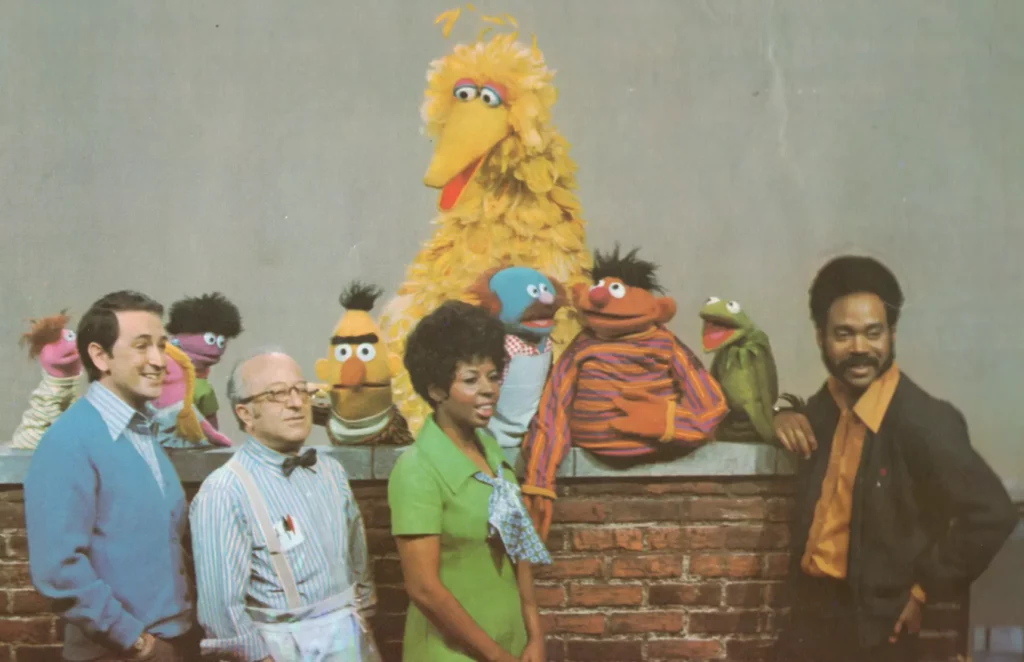When the Mississippi Tried to Ban Sesame Street for Showing a “Highly Integrated Cast” (1970)

On November 10, 1969, Sesame Street made its broadcast debut.
The very first lines were spoken by Gordon (Matt Robinson), a Black schoolteacher who’s showing a new kid around the neighborhood, introducing her to a couple of other kids, along with Sesame Street adult mainstays Bob, Susan, and Mr. Hooper, and Big Bird, whose appearance had yet to find its final form:
Sally, you’ve never seen a street like Sesame Street. Everything happens here. You’re gonna love it.
The milieu would have felt familiar to children growing up on New York City’s Upper West Side, or Harlem or the Bronx. While not every block was as well integrated as Sesame Street’s cheerful, deliberately multicultural, brownstone setting, any subway ride was an opportunity to rub shoulders with New Yorkers of all races, classes and creeds.
Not six months later, the all-White Mississippi State Commission for Educational Television voted 3 to 2 to remove Sesame Street from their state’s airwaves.
A disgruntled pro-Sesame commission member leaked the reason to The New York Times:
Some of the members of the commission were very much opposed to showing the series because it uses a highly integrated cast of children.
The whistleblower also intimated that those same members objected to the fact that Robinson and Loretta Long, the actor portraying Susan, were Black.
They claimed Mississippi was “not yet ready” for such a show, even though Sesame Street was an immediate hit. Professionals in the fields of psychology, education, and medicine had consulted on its content, helping it secure a significant amount of federal and private grants prior to filming. The show had been lauded for its main mission – preparing American children from low-income backgrounds for kindergarten through lively educational programming with ample representation.
Kids growing up in sheltered, all-white enclaves stood to gain, too, by being welcomed into a television neighborhood where Black and white families were shown happily coexisting, treating each other with kindness, patience and respect. (Sonia Manzano and Emilio Delgado, who played Maria and Luis, joined the cast soon after.)
Even though Alabama, Arkansas, Florida, Louisiana and Tennessee also moved to pre-empt the innovative hit show, the government appointees on the Mississippi State Commission for Educational Television who’d ousted Sesame Street found themselves outnumbered when Jackson residents of all ages staged a protest in front of Mississippi Public Broadcasting’s HQ.]
The Delta Democrat-Times published an editorial piece arguing that “there is no state which more desperately needs every educational tool it can find than Mississippi:”
There is no educational show on the market today better prepared than Sesame Street to teach preschool children what many cannot or do not learn in their homes….The needs are immense.
After 22 days, the ban was rolled back and Sesame Street was reinstated.
That fall, the cast made a pitstop in Jackson during a 14-city national tour. Susan, Gordon, Bob, Mr. Hooper and Big Bird sang and joked with audience members as part of an event co-sponsored by the very same commission that had tried to blackball them, and left without having received a formal apology.
Sesame Street has stayed true to its progressive agenda throughout its fifty+ year history, a commitment that seems more essential than ever in 2023.
Below, Elmo, a Muppet who rose through the ranks to become a Sesame Street star engages in an entry-level conversation about race with some newer characters in an episode from two years ago.
The Sesame Workshop recommends it for viewers aged 1 to 4, though it seems our country doesn’t lack for adult citizens who could do with a refresher on the subject…
Related Content
Watch Twin Beaks, Sesame Street’s Parody of David Lynch’s Iconic TV Show (1990)
Philip Glass Composes Music for a Sesame Street Animation (1979)
– Ayun Halliday is the Chief Primatologist of the East Village Inky zine and author, most recently, of Creative, Not Famous: The Small Potato Manifesto and Creative, Not Famous Activity Book. Follow her @AyunHalliday.


